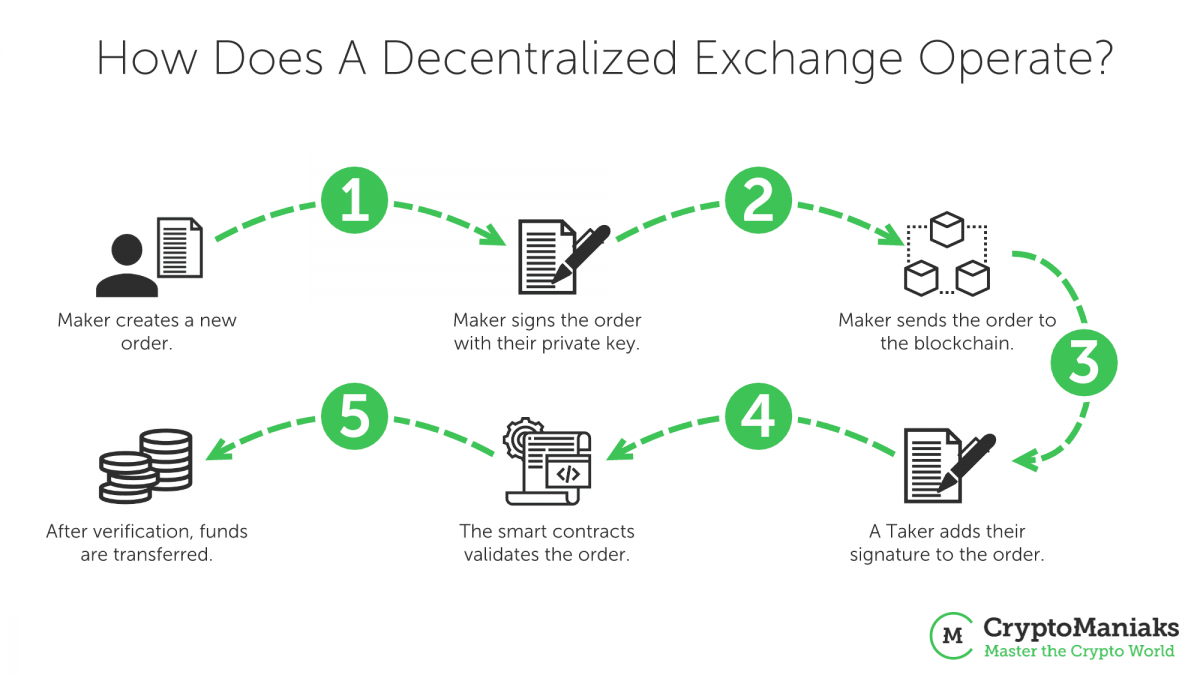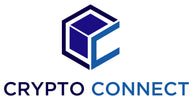Decentralized Exchange
What is a Decentralized Exchange (DEX)?
A decentralized exchange serves the same function as a centralized exchange, like the ones mentioned above, but the technical infrastructure is decentralized.
Why use DEXs in addition (or instead) of Centralized Exchanges?
The advantage of decentralized exchanges is that the users do not need to deposit funds to the exchange, so they can keep their funds secure in their wallet.
Ultimately, users maintain greater security when using DEXs, but they are often more difficult to use and have less liquidity.

By definition, A decentralized exchange or DEX is an exchange that does not rely on a third party service to hold the customer’s funds. Instead, trades occur directly between users (peer to peer) through an automated process.
How Does It Work?
This system can be achieved by creating proxy tokens (crypto assets that represent a certain fiat or crypto currency) or assets (that can represent shares in a company for example) or through a decentralized multi-signature escrow system, among other solutions that are currently being developed.
When you send someone else Bitcoin, the protocol is essentially making sure that your private key actually owns the Bitcoin you’re trying to send. We can apply the same model to any Ethereum-based exchange. When a user submits an order, Ethereum can verify that their private key owns the rights to that asset. We can use smart contracts to match specific buy orders with sell orders that meet each other’s criteria. All of this can be done peer to peer, without the need for a centralized intermediary.
This has a number of key benefits including:
1. Self-Custody: Users always retain custody of their funds. Exchange hacks are impossible as there’s no central entity storing user funds.
2. Permissionless: No centralized entity can deny a user access to their exchange. All that’s necessary to access a decentralized exchange is an internet.
3. Trustless: No central entity can roll back the order of transactions. Once a trade is confirmed onto the blockchain, it’s final.

